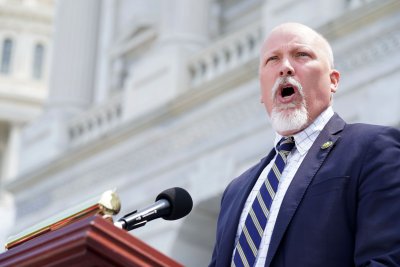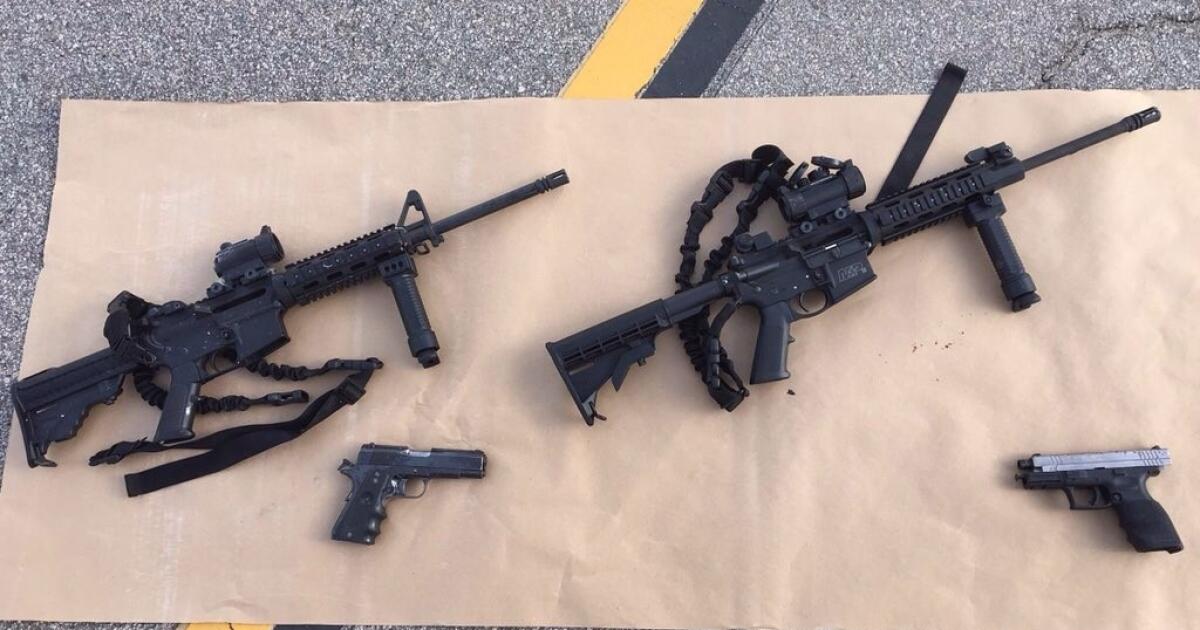Republican hard-liners defy Trump, Johnson as megabill fails to advance

May 16 (UPI) — President Donald Trump‘s legislative agenda megabill failed to advance after a band of far-right Republicans objected to it during a meeting of the House Budget Committee on Friday.
House Freedom Caucus members — Reps. Andrew Clyde, Josh Brecheen, Ralph Norman and Chip Roy — were joined by Rep. Lloyd Smucker in voting against letting the bill out of committee.
“We are writing checks we cannot cash, and our children are going to pay the price. I am a no on this bill unless serious reforms are made today, tomorrow, Sunday,” Roy said in the committee meeting. “Something needs to change, or you’re not going to get my support.”
Roy said on social media that the critics of the bill were “making progress” in negotiating it, but the vote was called “and the problems were not resolved.”
Norman similarly aired his issues with the bill on Friday on social media. “Why rush the process when we should be working overtime to get it right?” he said.
Clyde affirmed on social media that he “fully” supports Trump’s agenda but said the bill did not go far enough in addressing alleged waste, fraud and abuse in Medicaid, among other grievances.
Committee chair Rep. Jodey Arrington, R-Texas, adjourned the meeting after the vote was read and said they would not meet again until after the weekend.
Rep. Glenn Grothman, R-Wis., predicted in comments to NBC News that the bill would eventually pass after negotiations. “It has to pass,” he said.
Smucker, who initially voted for the bill before changing his vote, also said he hopes the bill can pass the committee by Monday.
Hours before the vote, Trump hit out at his critics on his Truth Social platform, saying that the “grandstanders” must unite behind his agenda.
“Not only does it cut taxes for all Americans, but it will kick millions of illegal aliens off of Medicaid to protect it for those who are the ones in real need,” Trump said.
“The country will suffer greatly without this Legislation, with their taxes going up 65%. It will be blamed on the Democrats, but that doesn’t help our voters. We don’t need ‘grandstanders’ in the Republican Party.”
House Speaker Mike Johnson has plans to put the legislation on the floor for a vote before Memorial Day.
Roy said Thursday in a post to X that “the House proposal fails to meet the moment,” and that “it does not meaningfully change spending,” and then added that he feels “many of the decent provisions and cuts, don’t begin until 2029 and beyond. That is swamp accounting to dodge real savings.”
Currently, the bill’s work requirements for Medicaid recipients without disabilities and children would not launch until 2029.
Aside from Roy and Norman, a contingent of GOP members from New York have made it clear they won’t vote for the bill unless it addresses state and local taxes, or SALT.
The bill as is raises the current $10,000 cap on SALT that can be written off on federal tax returns to $30,000, but the Empire State Republicans want it to be even higher.
“My Republican colleagues need to remember that maintaining the majority means they have to work together with swing seats like mine, where SALT is a priority. It’s time to negotiate; they need to pass the SALT, or I’m voting no,” Rep. Mike Lawler, R- N.Y. announced Wednesday on social media.
Fellow GOP and New York Congressman Nick LaLota stated on X Thursday that “$250K might be rich in Missouri,” but “not on Long Island,” and that “A $30K SALT cap doesn’t cut it. Before 2017, SALT was unlimited. We proposed $62K/$124K caps to fully protect 98% of my district.”
“I want to say yes to the One Big Beautiful Bill, but not without a real SALT fix,” LaLota said.
President Donald Trump responded to the impending showdown Friday via Truth Social, where he insisted “Republicans must unite behind, ‘The One, Big Beautiful Bill,'”
“We don’t need ‘grandstanders in the Republican Party. Stop talking and get it done!” Trump wrote.
The bill if passed would both extend the life of tax cuts set during Trump’s first term and enact up to $1.5 trillion in new tax breaks, with an increase of federal deficit by $1.5 trillion as Trump seeks to spend as much as $175 billion on border security and immigration enforcement, as well as an additional $150 billion for military spending.
The legislation would also increase fossil fuel production and the mining of public lands. To offset the spending, there will be $1.5 trillion in cuts to spending of safety-net programs.
“We have a duty to know the true cost of this legislation before advancing it,” Brecheen said. “If we are to operate in truth, we must have true numbers, even if that means taking some more time to obtain that truth.”

